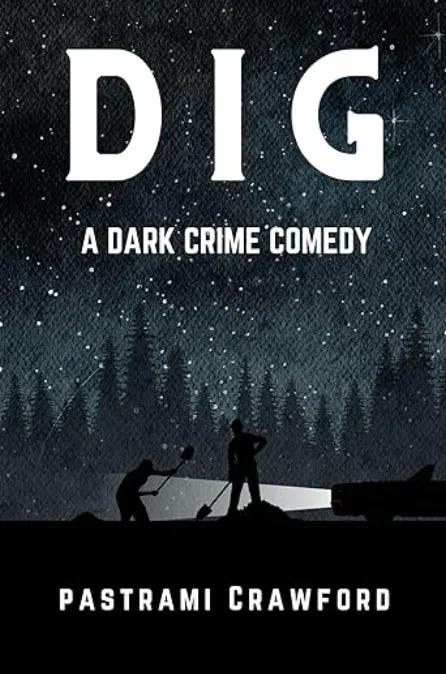My family and I recently visited Salem, Massachusetts. Heard a lot about witches and devils and Nathaniel Hawthorne. Filtered it all through my funny bone. This is what came out.
The business card read Crossroads Commerce. In smaller text below that, it read Souls Bought, Sold, & Exchanged. And below that Since the Beginning… We’ll Call You! A neighbor had given Ed the business card during a Labor Day hot dog barbecue. The neighbor had sold his soul just two weeks prior.
“It wasn’t an easy decision, Ed,” the neighbor said.
“I bet it wasn’t.”
“I mean, I got kids, ya know?”
“No, I didn’t know.”
“Well, they live in other states. With their moms.”
“Wow, uh, how many kids, moms, and states are we talking?”
“Who cares about the kids and moms, Ed? We’re talking about souls here. And I tell ya, brother, I’m a whole lot lighter for getting rid of mine.”
“Well, yeah, I guess you would be.”
“Don’t think I haven’t noticed that look on you.”
“What look?”
“That heavy look.”
“Oh, that. That’s just the nitrates. Hot dogs don’t do me any favors.”
“Christ on a cracker, Ed! You’re talking about wieners and preservatives. I’m talking about your soul, man.”
It’s true. Ed should have been taking his soul more seriously. He’d been ignoring it for some time, hoping it would go away, treating it the way most people treat panhandlers or marriage advice from a thrice-divorced aunt.
But souls never just go away. Left untended and malnourished, they feed on themselves. They become grotesque monsters, eventually dragging their parasitic flesh and bones to oblivion. Souls are efficient that way.
Ed had been ignoring his soul because of his guitar of all things. He was tinkering with the minor pentatonic scale when it first happened. Suddenly, the notes came to him—as a complete melody, fully formed—as if they had been whispered from the folds that separate this world from the next. The feeling was a sharp reminder to Ed that he was alive—really, really alive.
It left Ed in a state of euphoria. He couldn’t say how long the euphoria lasted, but as he reveled in it, an Andy Griffith Show marathon played on the TV. When Ed’s rapture began, Opie’s hair was the light gray of the early black-and-white seasons, and when it wore thin, Opie’s hair had changed to a saturated burnt umber. And just as Opie became more real, more colored and textured, so, too, did the realization of what Ed had just experienced, the responsibility of it all.
It scared him plenty. Certain body parts of Ed’s even seemed to have their own opinions about Ed’s life—whenever he glanced at his Martin acoustic, or when his fingers involuntarily fretted scale shapes against his jean pockets, his testicles shrank. He tried all kinds of things to manipulate the fearful feelings, to channel them into song fodder, but then his testicles would just withdraw altogether. The cowards.
But why wouldn’t they? Who could blame Ed, or his testicles, for being scared? He had heard the beat of his own heart, figuratively speaking—clear and distinct and wrought with purpose. If a body hears that and doesn't go topsy-turvy and inside out, he’s better than most.
Ed sometimes fantasized about a career in music. He imagined life on the road in small towns like Pocatello and in cultured cities like New Orleans. He pictured song lyrics written on the back of boarding passes and chord progressions jotted on condom wrappers. He daydreamed of a strawberry blonde groupie named Rose. Sometimes he imagined her name wouldn’t be Rose but rather Clementine, or maybe even Beulah. Ed’s songs would bring the two of them together as if his gift was not music but Cupidian magic. This is about where the fantasy fizzled, though, because writing the kind of music that would inspire a Rose or a Clementine or a Beulah, well, that would require Ed to give something of himself. It might require him to give his whole self.
Sure, the glamor seemed like a hoot, but to get to it, he'd have to step off a cliff. It wouldn't be flirting with the void; it would be spiritual communion with the void. A real pursuit of music—of rhythms and beats, of melodies and lyrics, of sadness and joy and vulnerability and truth—hell, that could skin him alive.
And what if he wasn't resilient? What if he didn't have the guts? The stomach? The heart? Shit, his balls retreated at the mere thought of it all, and he didn’t need his balls to live. Not really. But his guts, his stomach, his heart—those were deal-breakers. And even if they weren’t, the probability of shame was.
The shame! Ed thought. The goddamned shame! The shame would be worse than topsy-turvy testicles! Worse than a thousand deaths! As Ed had this thought, he received a phone call: "Hello?"
"Edwidge Wilkerson?”
“Speaking.”
“I’m with Crossroads Commerce. I understand you'd like to buy, sell, or exchange a soul."
"Uh… I guess…" Ed cleared his throat, stalling to gather himself.
"It's a difficult decision, I understand."
“How did you know—”
“Like the card says, we call you.”
“But how—”
“Like the card also says, we’ve been in this business for some time.”
Ed fumbled the card from his front pocket and read the subtext: Since the beginning.
“Do you always do business over the phone?”
“We get things rolling this way, but it’s a relatively recent luxury. The soulless, the soulful, and the soul-curious haven’t always had access to phones now, so in the past we’ve used messages in a bottle, burning bushes, trails of breadcrumbs, carrier pigeons, clouds—we even used parrots once, but they were a disaster. Vindictive little monsters.”
“No text messages?”
“We tried it, but autocorrect is a nightmare. We had one client text in a request to exchange his soul for a big penis—his words, not mine—and it autocorrected to big peninsula.”
“Oh, drag.”
“Yeah. That man is now the governor of Florida. You can imagine how much he wanted his soul back.”
“I bet.”
“And the paperwork—it’s still piling up. I’ll take the sulfur and the lake of fire and all the leaf blowers with their broken kill switches, but the paperwork! Shit, that’s the cruelest hell there is.” Ed was about to ask a follow-up question about that hell remark when the Crossroads Commerce agent transitioned: “But look at us, chatting it up like a couple of war buddies.”
“Yeah, I feel like I’ve known you forever,” Ed said, which was a lie, and then he wondered whether it was best practice to lie to someone in the soul business. Probably not, he decided.
“I’d love to bump gums with you all night, Mr. Wilkerson, but you know better than I do there’s a soul that needs buying, selling, or exchanging.”
“I guess so.”
“So which is it gonna be? I’m betting you’re looking to exchange, aren’t you?”
“Why would you say that?”
“Well, when I hear you talk, you sound like an elephant, all sad and heavy like, as if you’re carrying not exactly the weight of the world but maybe the weight of, oh, I don’t know… maybe Bakersfield, California. I mean, it’s not the world, but it’s a lot of weight. And I don’t think you’re looking to unload it entirely. Seems like you’re a man of principle. Probably just one principle, a flimsy one. And it probably doesn’t matter much what that principle is, but you’re gonna want a soul to account for whatever it is, am I right?”
"Yeah, I guess."
"Well, all right, then, Mr. Wilkerson. Let's make arrangements."
“Wow,” Ed said. “This suddenly feels so real.” But when Ed said real, he meant strange. He was in no place to see that those two words often mean the same thing.
The agent instructed Ed to meet someone called Bernie Panpipes, Esq. at the corner of Lost Turtle Trail and Pioneer Drive, about twenty miles west of his suburban studio apartment. He was supposed to have met this Bernie person at midnight, but he didn’t make it until about twenty after.
When he arrived, he was surprised to see that Bernie Panpipes, Esq. was a woman. But not some wise old woman with a glass eye and not some buxom, barnburnin’ Jezebel either. Bernie Panpipes, Esq. looked mid 40s and wore a silk seashell blouse beneath a tailored skirt suit, plum-colored to set off her green eyes. She looked like both a professional who took shit from no one and a seasoned mother who could soothe a skinned knee with a sweet song and a squeeze. Her taupe hair fell just above her shoulders and it had a messiness about it, not because she was messy but because she had a long list of things to do and managing her hair was somewhere near the drop-dead bottom.
“You’re late,” she said.
“Yeah, sorry. I’ve been having some stomach problems. Bad hot dogs, I think.”
“That’ll do it.” Bernie Panpipes, Esq. licked her teeth. “Having said that…” She paused, gesturing for Ed to sit in one of two Adirondack chairs that Ed was certain weren’t there a moment ago.
“Were these chairs here—”
“Having said that…” she repeated, both words and gesture. Ed sat. Bernie sat, too, and then continued: “I don’t think that hot dogs are your problem.”
“I think I would know more about my stomach problems than you would.”
“I deal in stomach problems, Ed.”
“The rep on the phone said you were a Soul Consultant. Not a gastro-whatever-it’s-called.”
“The rep’s job is to get you here, but I do the dirty work, and I’m telling you, the dirty work of souls is all about guts, i.e. stomach problems.”
“If hot dogs aren’t my problem, what is?”
“The upset stomach—it’s an acute condition, yeah?”
Ed scratched at his jaw, pretending to think over the question. Really, though, he was stalling. He repeated the word acute in his head, hoping against hope that its meaning would suddenly appear, like a couple of Adirondack chairs. It was one of those words he heard only occasionally and had many times vowed to learn what it meant, but he never got around to it, and here he was now with a not-so-bright look on his face.
Bernie Panpipes, Esq. came to his rescue: “Your stomach problems haven’t been going on for a long time. They’re relatively recent, yes?”
“I guess they are.”
“Well, based on your guess, I’d guess you started having them right after our Crossroads Commerce business card found its way into your pocket.”
“I couldn’t argue with that.”
“Wiser by the moment. Now keep up. Here we go. Correlation does not imply causation. Unless it does. As in your case.”
“Huh?” Another not-so-bright look on Ed’s face, this even less bright than the former.
Bernie Panpipes, Esq. stood from her Adirondack chair and began pacing. “You’re here because you want to exchange your soul. But there’s what you want and there’s what you need, and those two are not what we in the soul racket call simpatico. Your guts are telling you as much.”
“Are you trying to talk me out of this deal?”
“Don’t confuse me with your own guts. Gut-related confusion is how you got yourself all balled up in the first place.”
“You’re one of the worst salesmen I’ve ever met.”
“Who says I’m a salesman?”
“Isn’t that what we’re doing here? You’re the devil and I’m selling my soul to you? Crossroads and all that.”
“You sound like a real asshole, Ed.”
“I feel like an asshole. That’s why I’m here, and you’re not making it easy on me.”
“I’m not here to make it easy on you.”
“Then what are you here for?!” In this moment, Ed, for the first time in some time, felt something other than crippling fear or anxiety. He felt frustration, which isn’t exactly the filet mignon of emotions, but it was a nice reprieve.
The left half of the lips of Bernie Panpipes, Esq. curled upward. Not quite a smile of victory but rather a gesture satisfied with a little momentum.
“The myths you’ve heard—horns, hayfork, bifurcated tail, all that devil-at-the-crossroads mythology—it’s all nonsense.”
“We’re literally at the crossroads right now.”
“Marketing is marketing. And, by the way, it’s people like you who keep pushing that nonsense.”
“Me?”
“Yes, because you’re an asshole. But we’ve covered that. More pressing than your assholery, though—wait, is it assholery or asshole-ness?” Bernie lost herself to an internal semantic debate for a moment. “Gonna have to figure that out someday. Comes up so much in this business, you wouldn’t believe it. Anyhow, more pressing than your asshole-like tendencies is your gift.”
Ed knew where this was going but played dumb, which was an asshole thing to do. You had to hand it to Bernie Panpipes. She knew how to call it.
“The music, Ed, you’ve got the music. Just like the others—the painters, the sculptors, the poets, and the storytellers. And we shouldn’t forget the prophets, the shamans, the philosophers, and the mythmakers. The whole bunch of you shovel the bullshit. And don’t get me wrong, if you didn’t, everyone else would be buried in it.”
“Why is that my problem?”
“Because you’ve got the gift.”
“I didn’t ask for any gift.”
“I know you didn’t.”
“Don’t other people ask for it?”
“Sure they do, but it doesn’t always work out.”
“That’s a drag. Why not?”
“Well, gifts are given—or not given—for sublime reasons. When somebody gets a gift that wasn’t meant for them, horrible things can happen. Rotten things.”
“Like what?”
“Like disco. Or James Fenimore Cooper. Or misspelled tattoos.”
“I see,” Ed nodded.
“Good. So never mind what you heard in the songs or the myths. I’m not here to make it easy on you.”
“But it’s not easy on me now.”
“Yes, yes, your stomach issues. And…” Bernie paused to cup her hands as if holding a pair of plums. “...your other issues.”
“How do you know about that?”
“You mean those? Well, the truth is, I didn’t. But it’s a common symptom and I took a swing. What I’m getting at here, Ed, is I'm not here to tempt you. I'm not here to cut a too-good-to-be-true deal that plays out in my favor. That deal was already made when you were given the gift.”
“But it doesn’t feel like a gift. Gifts are supposed to make you feel good, not like you want to throw up.” Even Ed knew this wasn’t true. So many years ago, he and his high school girlfriend were each other’s first.
“I want to give you my virginity,” she told Ed. And she did. And that gift still haunted him. He imagined a scaled-down vagina-sized version of his high school girlfriend, and he often caught her in his mind’s eye, a look of disappointment on her face as if to say, “Hey, I gave you my virginity. Do something with your life already so I have something to tell my grandchildren about.”
Ed attempted to lay out the argument he was advancing on Bernie Panpipes, Esq.: “Also, I don’t remember agreeing to anything.”
“What do you want me to say, Ed? That you're right? That you got a raw deal? That you don't need to see this thing through? Not gonna do that, Ed. You have a mainline to the better angels of your nature.”
“Who? You?”
“No, not me.”
“Good! Because I’d hate to think the better angels of my nature would be the same person to make fun of my testicles.”
Bernie Panpipes, Esq. ignored Ed’s jab. She tried to connect. “Ed, that music that comes to you, it’s not from you.”
“Who’s it from, then?”
“Beats the hell out of me, but they’ve picked you to tell their stories and play their songs. For them. For everyone else…” She took a breath and delivered her eleventh-hour effort: “For Beulah,” she said.
Ed’s cheeks soured at the sound of Beulah’s name, and the air seemed to thicken, too, making it difficult for him to breathe. “I haven’t told anyone about that. About her. About Beulah.”
“It’s written all over your soul, Ed.”
“She doesn’t even exist. I just imagined her.”
“And what difference does that make? She’s not any less real because of your imagination.”
Ed knew this was true because just then his imagination began reeling, and the impact of that was as real as anything he’d ever felt. Flashes of Beulah. Thoughts of the sacrifices he’d have to make. Visions of surrender. Chilling flickers of vulnerability. The terror of reckoning with who he was and what he was supposed to do and become. His chest felt like it might cave in at any moment.
Bernie shook him from the cliffs of his reverie. “It’s getting to be that time, Ed. If this exchange is going to happen, it’ll have to happen now.”
“Can we postpone?”
“I’m afraid not. This is the opportunity you get. After this you go to the end of the line, and it’s a long line, longer than the life that you’ve got left.”
“But it’s so hard.”
“It’s not supposed to be easy.”
“Why not?”
“You’re made in the image of the sublime, and the sublime is the definition of anxiety. When the sublime is at work—setting the sun, raising it, plotting the migratory patterns of European honey buzzards—all is well. But on days off, those in-between times like you’re in right now, well, talk about your basket cases.”
“So your job is to talk me into being a basket case?”
“My job is to convince you to honor your gift, to be everything you’ve imagined and even to see the wonderful ways in which your imagination has failed you. But, like I said, you can trade it all away if you like. It’s your decision.”
All of the uncertainty in the world ramped up inside of Ed and, at last, he made his choice. Bernie Panpipes, Esq. sighed. “I’ll start the paperwork,” she said.
A few years later, Ed won employee of the quarter at Oceanus Accounting. His wife was proud and conveyed as much by making herself intimately available to him, which was a bonus, a break from their every-third-Friday routine. The rest of his life was easy, almost painless, with one exception. During the busy seasons, when his fingers would tap tap tap his ten-key adding machine, he achieved a sort of rhythm for which he couldn’t account. It was a great mystery to him, a mystery which was always followed by a wave of grief that washed over his body and his soul.
If you want to laugh and smile more, consider perusing the All Kinds of Funny archive.
And if you haven’t picked up my dark crime comedy novella Dig…












I was really into your story, when you ended it, and I wanted more.
WOW! That was deep. Well written, evocative and you really captured a nugget of truth. You gave a glimpse of the unfathomable creative urge and it's burden, where most only see the rewards.